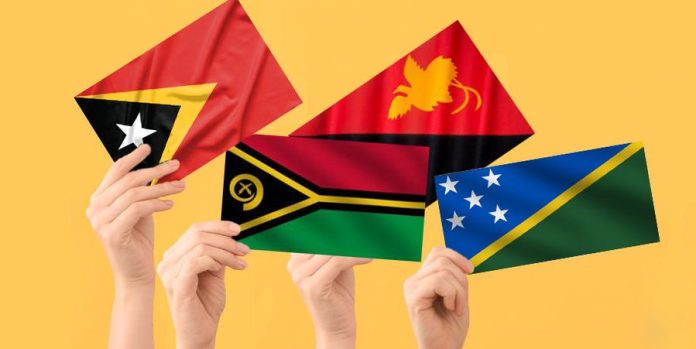By Stephen Howes and Athualla Rasheed
Australia is about to launch a new visa that will for the first time create a Pacific quota in Australia’s permanent migration regime. 3,000 visas will be issued every year for the Pacific Islands and Timor-Leste. It’s a huge opportunity yet awareness of this new visa is low.
The Pacific Engagement Visa or PEV will utilise a ballot. That’s a deliberate decision in order to reduce the skew of visas to the skilled.
We know that over time the PEV ballot will become very popular. New Zealand has a similar visa, in fact two — the Pacific Access Category (PAC) Resident Visa and the Samoa Quota Resident Visa — and in some countries there are 40 ballot entries for every available visa. But we want the ballot to be popular from the start because the more popular it is the more equitable the PEV will be. It would be unfortunate if only the most skilled and best connected were to enter the PEV ballot in the first few years.
The legislation to authorise the visa was passed last year, but regulations have just been issued, and ballot applications are not yet open. The biggest hurdle still to be crossed is the announcement of the division of the 3,000 visas between the countries eligible to participate, namely the Federated States of Micronesia, Fiji, Kiribati, Nauru, Palau, Papua New Guinea, Marshall Islands, Samoa, Solomon Islands, Timor-Leste, Tonga, Tuvalu and Vanuatu. There are plenty of rumours, and we are anticipating that the great bulk of the available visas will go to PNG, Timor-Leste, Solomon Islands and Vanuatu. We are expecting an announcement soon, but don’t know when.
After the quotas have been announced, when will the PEV ballot open? When the PEV was first promised – by Labor when in opposition – it was meant to be in place by July 2023. Liberal opposition meant that deadline was missed. Given the regional support for the visa, and the high-profile nature of this election commitment, we expect subsequent delays to be minimised and the ballot to open in the first half of this year.
So, get ready. What will entering the ballot involve?
First, the primary applicant will have to be between 18 and 45. The primary applicant will be able to apply on behalf of their family. The New Zealand ballot only allows each person to enter the ballot once (so a husband and wife can only make a single application).
Second, you’ll need to be a citizen of and a child of someone born in one of the participating countries. So, contrary to the messages now appearing on the web, those who have bought a Vanuatu passport will not be eligible. (This condition is actually a condition of the visa, but there is no point entering the ballot if you won’t be eligible for the visa.)
Third, you’ll need a passport from one of the participating countries. Passports are not easy to obtain in some Pacific countries, so this will be a difficult requirement for many.
Fourth, applications will have to be made online. So you’ll need access to a computer, or at least a mobile phone, and the internet. (The equivalent New Zealand schemes are also online.)
Fifth, applications will have to be accompanied by an online payment equivalent to 25 Australian dollars. This is per application, not per family member included on the application. In New Zealand, the fee is paid by a credit or debit card, and in the local currency equivalent of the fee in New Zealand dollars. Applicants will need either a bank account or access to an intermediary with such an account.
Applicants will not need to be in their home country to apply. There are some 40,000 Pacific workers in Australia on PALM visas and they are expected to be among the first to enter the ballot.
There will be more – and more difficult – hurdles to cross if an applicant’s ballot entry is successful. The applicant or their partner will need to obtain a job offer, pass some sort of English language test, and pass character and health checks. The job offer requirement will be the hardest, but the Australian government is establishing a free service to connect successful ballot applicants with employers in Australia, so don’t let that put you off.
There will be a limit on how long ballot winners will be given to meet these criteria, but this hasn’t been announced yet. In New Zealand, visa applications must be made within eight months of ballot success.
And that’s it. Ballot entry will be simple, but it will also be easy to miss out. New Zealand’s ballot is only open for a month. Rural residents and the poor are less likely to have access to the internet, and are less likely to have a bank account and passport, so will definitely be at a disadvantage. But this is a great opportunity for rich and poor alike.
Look out for scams. Remember that the fee will be only $25 (US$16) per application (per family), so beware of anyone charging $50 per family member to put in an application on your behalf.
And, remembering that the PEV will only gain in popularity, your chances of gaining permanent residency in Australia will never be higher than the first time around.


















